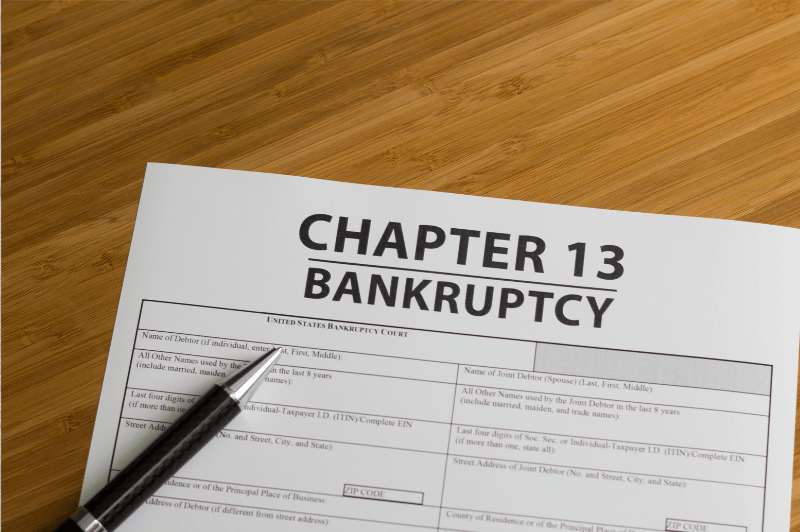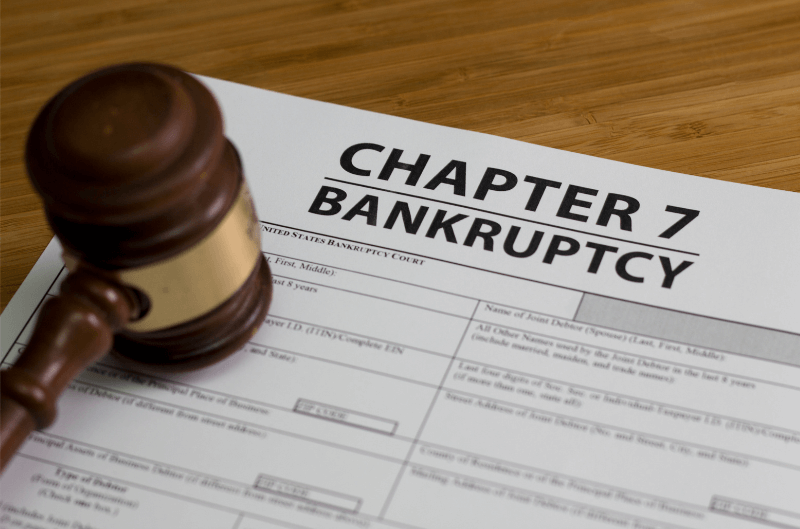
Selling a house can be a stressful and overwhelming experience, but when you find yourself amid a Chapter 13 bankruptcy, it can feel like an insurmountable challenge.
The financial burden of bankruptcy combined with the desire to sell your house may leave you wondering if it’s even possible to navigate this complex situation. Fortunately, there are options available to you that can help you sell your house while in Chapter 13 bankruptcy.
One of these options is to work with cash home buyers in Texas who can offer you a fair and fast cash offer for your property. Whether you need to sell a house fast in Arlington or buy houses in Dallas, these cash buyers can help you close the deal in as little as seven days and save you from the hassle of dealing with traditional buyers, agents, and lenders.
We’ll explore the process, considerations, and potential hurdles you may encounter when selling a house during bankruptcy. In understanding the intricacies of this situation, you can make informed decisions and work towards a successful outcome that alleviates your financial stress.
Can You Sell a House While in Chapter 13 Bankruptcy?
Selling a house while in Chapter 13 bankruptcy is indeed possible, but it requires careful consideration and adherence to specific rules and procedures.
Understanding Chapter 13
Chapter 13 bankruptcy is a form of debt relief or reorganization that allows individuals with a regular income to develop a plan to repay their debts over three to five years. The purpose of Chapter 13 is to provide debtors with an opportunity to catch up on missed payments and ultimately regain financial stability.
When it comes to selling a house during Chapter 13 bankruptcy, several factors come into play. First and foremost, you need to obtain permission from the bankruptcy judge before proceeding with the sale. This is because your property is considered an asset of your bankruptcy estate, and the court must approve any transactions involving your assets.
To obtain permission, you must file appropriate motions with the court, outlining your reasons for selling the property and demonstrating that it will benefit your overall bankruptcy case.
The court will evaluate the motion and consider factors such as the equity in the property, the sale price, and how the proceeds of the sale will be used. If the court determines that selling the house is in the best interest of all parties involved, it will likely grant permission.
What To Remember
It’s important to note that any proceeds from the sale will be subject to certain conditions. In most cases, you must use the proceeds to fulfill your obligations under the Chapter 13 repayment plan.
That means the funds will be allocated towards paying off your debts as outlined in the plan rather than being available for personal use. Additionally, the court may require you to provide an updated repayment plan that reflects the changes resulting from the sale of the house.
Furthermore, it’s crucial to see whether you can get a free consultation with a qualified bankruptcy attorney who can guide you through the intricacies of selling a house during Chapter 13 bankruptcy. They will ensure that you comply with all the necessary legal requirements and assist you in obtaining court approval for the sale.
Chapter 13 vs. Chapter 7 – What’s the Difference
Chapter 13 and Chapter 7 are two different chapters of bankruptcy under the United States Bankruptcy Code, each with its own purpose and implications.
Understanding the differences between each type of bankruptcy is essential when considering either as an option.
Chapter 13 Bankruptcy
Chapter 13 bankruptcy is often referred to as a “reorganization” bankruptcy. It is designed for individuals with a regular income who want to repay their debts over time while retaining their assets. Critical features of Chapter 13 include:
1. Repayment Plan: Debtors create a repayment plan spanning three to five years, detailing how they will repay their debts. The plan is based on their income, expenses, and the amount owed to creditors.
2. Asset Retention: The Chapter 13 plan allows debtors to keep their assets, such as a house or a car, as long as they can demonstrate the ability to make regular payments according to the plan.
3. Debt Discharge: Debtors may be eligible to discharge remaining unsecured debts (such as credit card debt or medical bills) at the end of the repayment plan, provided they have made all required payments.
Chapter 7 Bankruptcy
Chapter 7 bankruptcy, also known as “liquidation” bankruptcy, is a more straightforward and faster process. It involves liquidating a debtor’s non-exempt assets to pay off creditors. Key features of Chapter 7 include:
1. Liquidation of Assets: A court-appointed bankruptcy trustee liquidates non-exempt assets to repay creditors. However, most states provide exemptions that allow debtors to retain essential assets like a house, car, or personal belongings.
2. Debt Discharge: Once the assets are liquidated, the remaining unsecured debts are typically discharged, relieving the debtor of further liability for those debts.
3. Means Test: Chapter 7 requires debtors to pass a means test to determine their eligibility. The means test assesses the debtor’s income and expenses to establish if they have a sufficient financial need for Chapter 7 relief.
Chapter 13 focuses on debt repayment over time while allowing debtors to retain their assets. In contrast, Chapter 7 involves liquidating non-exempt assets to repay creditors and obtaining a discharge of qualifying debts.
The decision as to whether you should file bankruptcy under Chapter 13 or Chapter 7 depends on individual circumstances, including income, assets, and debt amounts. Obtaining legal advice from a bankruptcy attorney is crucial to determine the most suitable option and navigating the bankruptcy process effectively.

Can You Sell a House While Filing for Bankruptcy
It is possible to sell a house while filing for bankruptcy, but some specific considerations and procedures need to be followed. When you file for bankruptcy, your assets become part of the bankruptcy estate, and any transactions involving those assets require approval from the bankruptcy court.
To sell a house while filing for bankruptcy, you will need to obtain permission from the court. This typically involves filing a motion with the court and providing details about the sale, such as the proposed sale price, terms, and how the proceeds will be used.
The court will evaluate the motion and consider factors like the equity in the property, the potential benefit to your bankruptcy case, and the interests of your creditors.
If the court determines that selling the house is in the best interest of all parties involved, it will likely grant permission. However, it’s important to note that any proceeds from the sale will be subject to certain conditions.
In most cases, the funds will be used to fulfill your obligations under the bankruptcy proceedings, such as repaying creditors or following the approved bankruptcy plan.
It’s essential to consult with a qualified bankruptcy attorney who can guide you through the process and ensure that you comply with all the necessary legal requirements.
They will help you navigate the complexities of selling a house while filing for bankruptcy, assist with the court approval process, and ensure that your interests are protected throughout the transaction.
How To Sell a House While Filing for Bankruptcy
Selling a house while filing for bankruptcy involves navigating specific steps and procedures to ensure compliance with bankruptcy laws. Here is an overview of the process:
1. Consult with a Bankruptcy Attorney
Before proceeding with the sale, it is crucial to consult with a qualified bankruptcy attorney. They will provide guidance based on your specific circumstances, explain the implications of selling the house during bankruptcy, and ensure that you follow all legal requirements.
2. Obtain Court Approval
Selling a house during bankruptcy requires permission from the bankruptcy court. Your attorney will help you prepare and file a motion with the court, outlining the reasons for the sale and the proposed terms. The motion should demonstrate that the sale is in the best interest of all parties involved, including your creditors.
3. Provide Supporting Documents
Along with the motion, you will need to provide supporting documentation, such as a purchase agreement, appraisal, or comparable sales data, to justify the sale price. These documents help the court evaluate the fairness and legitimacy of the proposed transaction.
4. Attend a Court Hearing
After filing the motion, you may be required to attend a court hearing where the judge will consider your request. During the hearing, you or your attorney will present your case, provide any necessary explanations, and answer any questions the court may have.
5. Follow Court Instructions
If the court grants permission to sell the house, you must adhere to any instructions provided. This may include using a real estate agent, setting a minimum sale price, or depositing the sale proceeds into an escrow account.
6. Allocate Sale Proceeds
Once the sale is complete, you must allocate the proceeds as directed by the court. In most cases, the funds will be used to fulfill your obligations under the bankruptcy proceedings, such as repaying creditors or following the approved bankruptcy plan.
Throughout the process, it is essential to maintain open communication with your bankruptcy attorney, follow court orders promptly, and provide all required documentation.
By working closely with legal professionals and adhering to the necessary procedures, you can successfully sell your house while filing for bankruptcy.
Things You Need to Know When Selling a House During Bankruptcy
When selling a house during bankruptcy, there are essential factors to consider:
1. Court Approval: Obtain permission from the bankruptcy court before proceeding with the sale.
2. Consult a Bankruptcy Attorney: Work with a qualified bankruptcy attorney who can guide you through the process and ensure compliance with legal requirements.
3. Provide Documentation: Prepare necessary documents such as a motion, supporting financial information, and a purchase agreement to justify the sale.
4. Follow Court Instructions: Adhere to any instructions provided by the court, such as using a real estate agent or depositing proceeds into an escrow account.
5. Allocation of Proceeds: Understand that the sale proceeds may be used to fulfill obligations under the bankruptcy proceedings, such as repaying creditors or following the approved bankruptcy plan.
By being aware of these essential aspects, you can navigate the process of selling a house during bankruptcy more effectively and ensure compliance with the necessary regulations. Additionally, you can also estimate the total costs of selling a house and plan your finances accordingly.
Final Thoughts
So, can I sell my house while in Chapter 13 bankruptcy?
Selling a house during bankruptcy is possible, but it requires obtaining court approval. By filing a motion and providing supporting documents, you can seek permission to sell your house and justify the transaction’s fairness and benefit to creditors.
It is crucial to work closely with a bankruptcy lawyer who may offer a free consultation to guide you through the process and ensure compliance with legal requirements. Remember to follow court instructions and allocate sale proceeds as directed.
Through understanding the process, consulting with professionals, and adhering to the necessary steps, you can successfully navigate selling a house during bankruptcy and work towards your financial goals.
